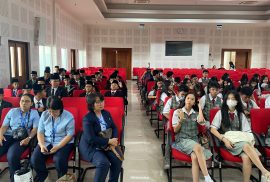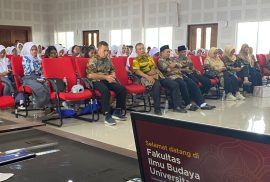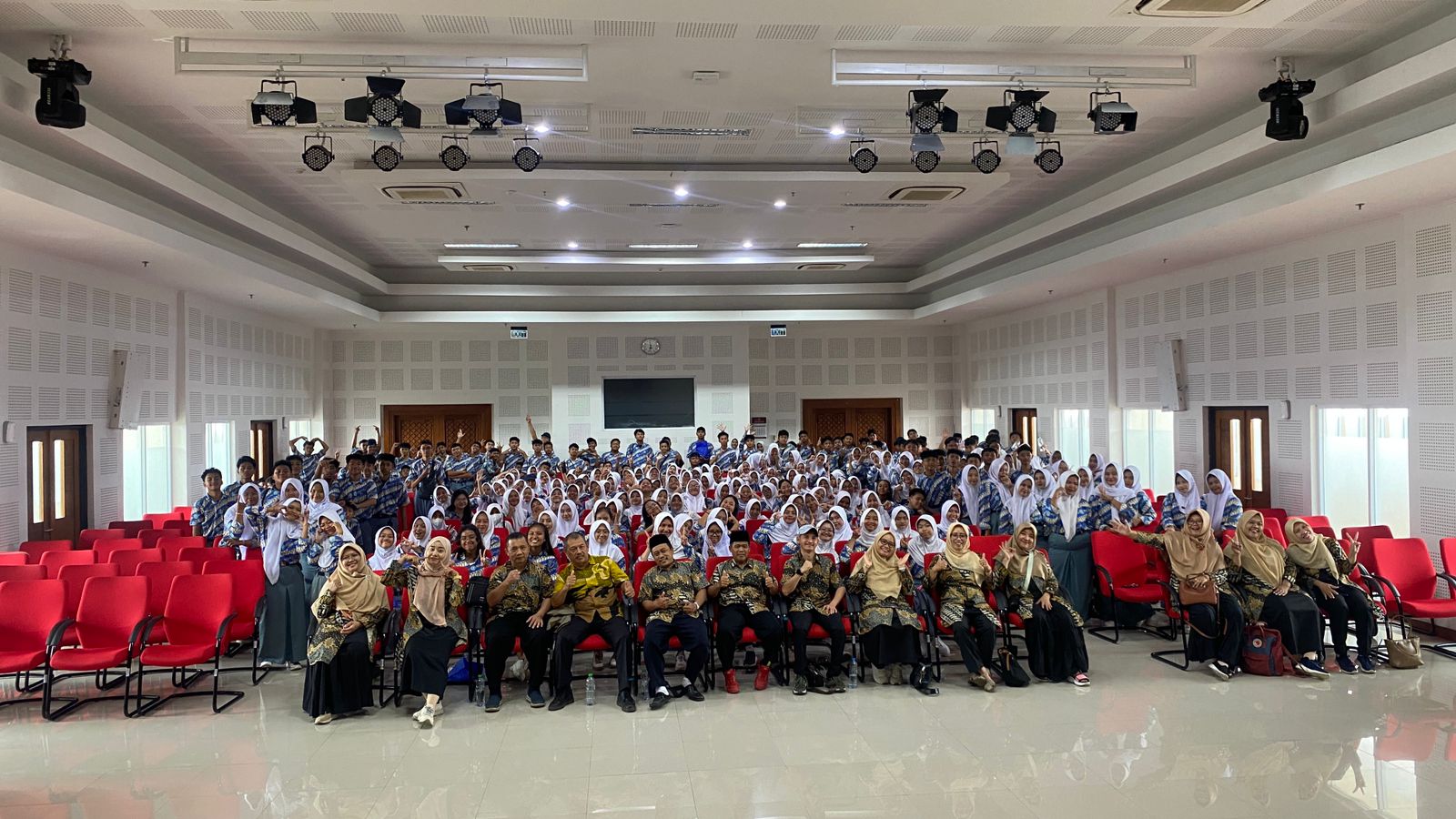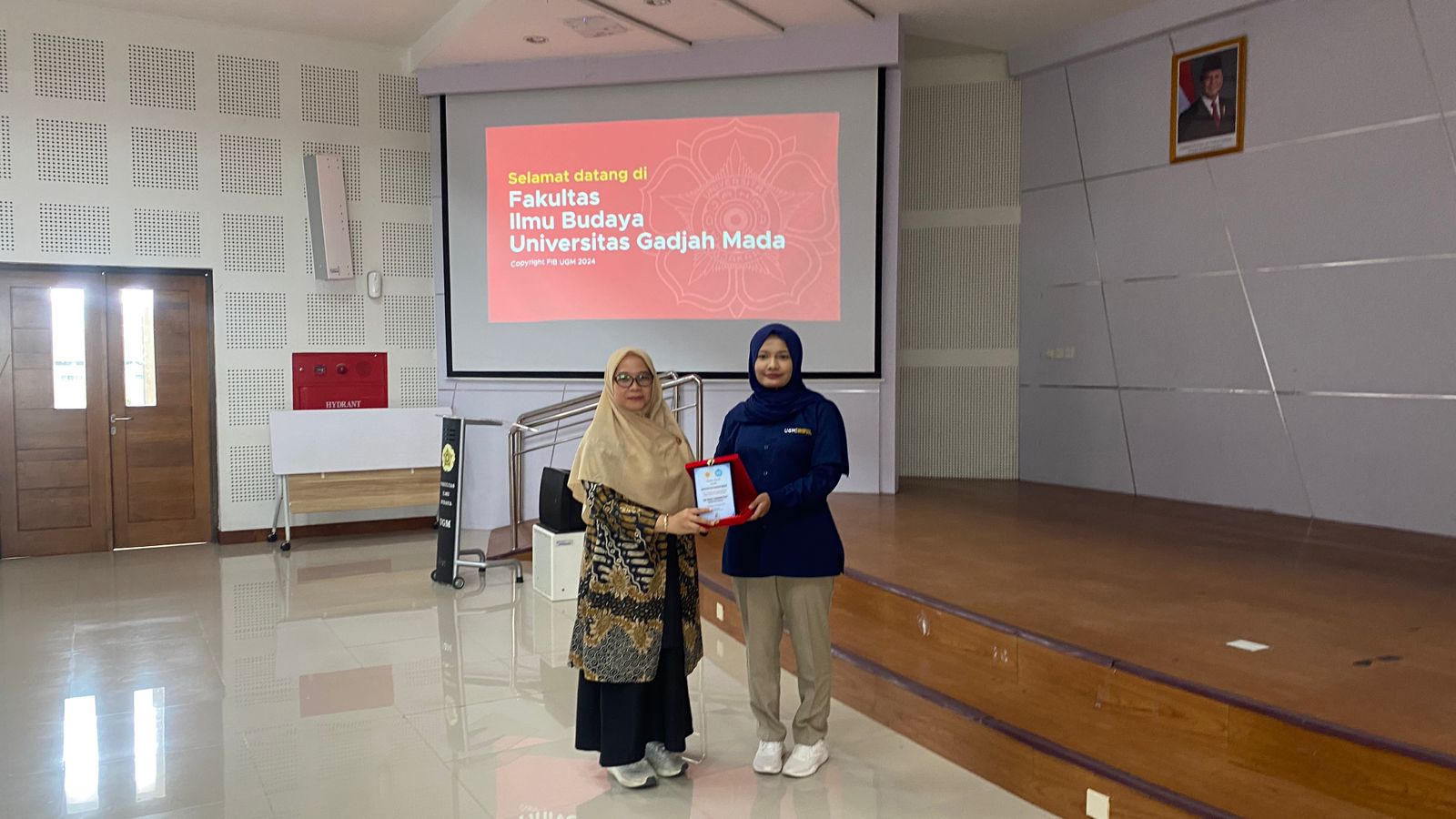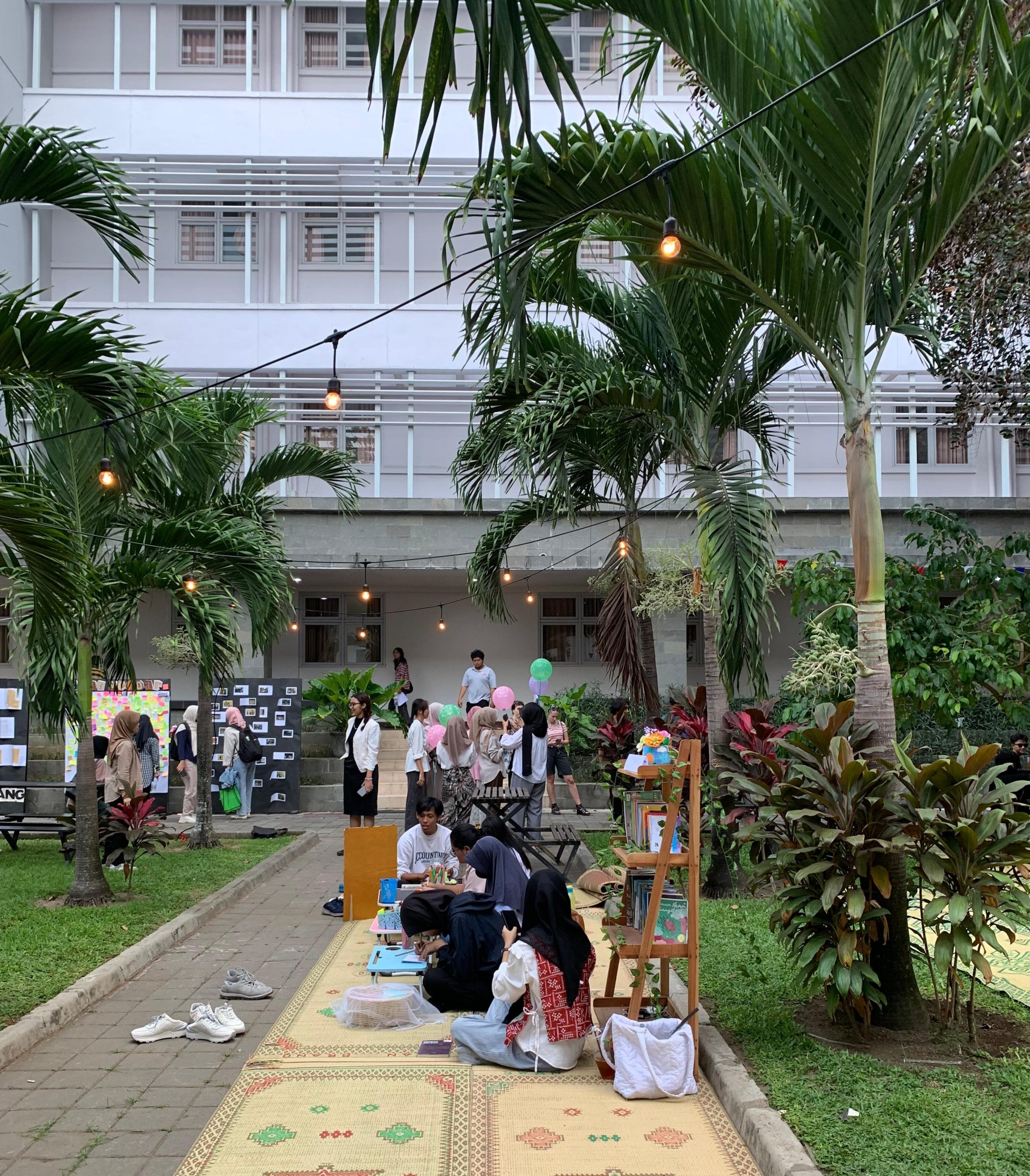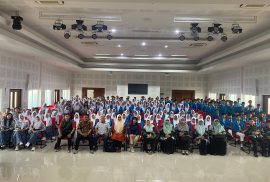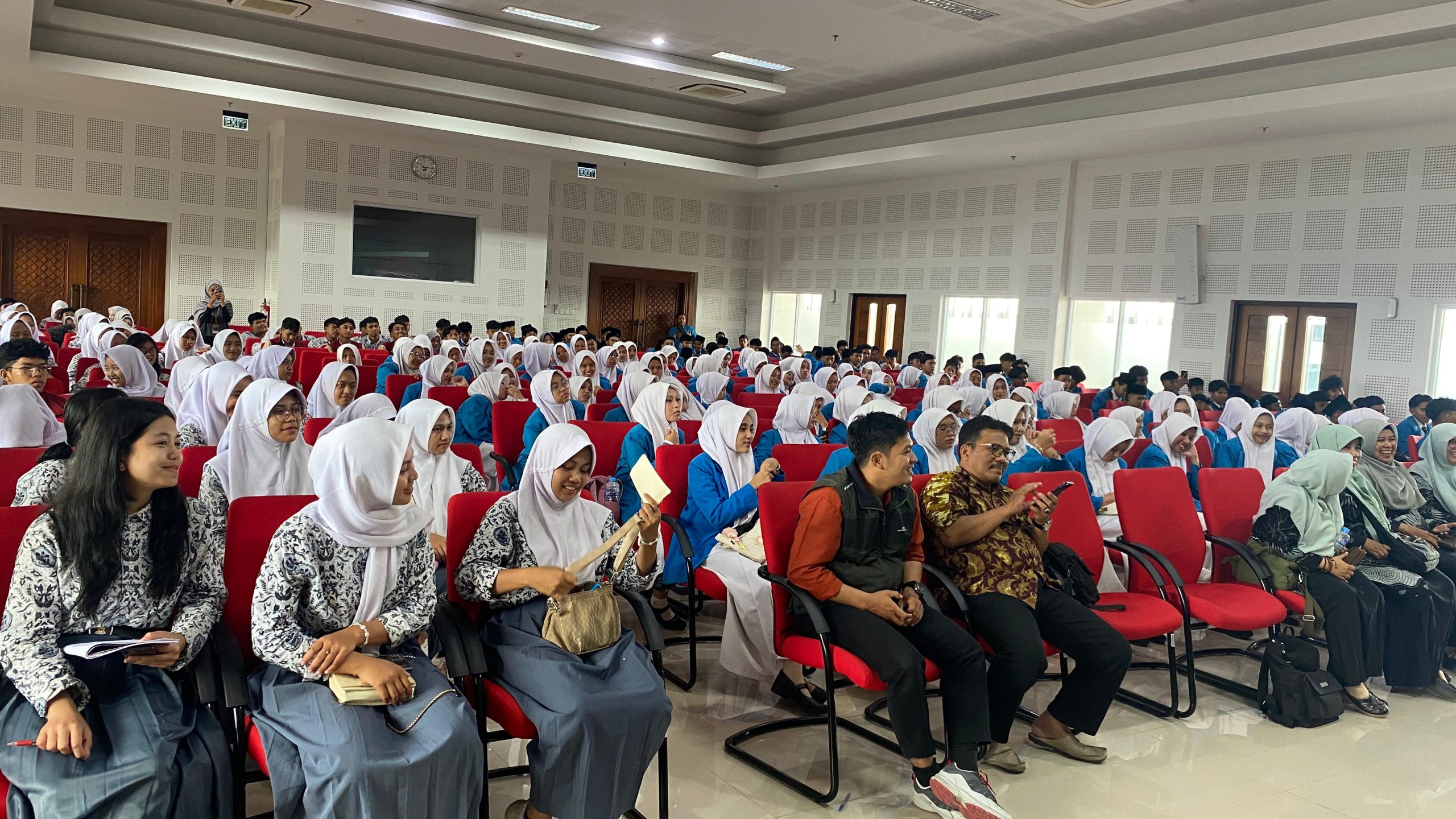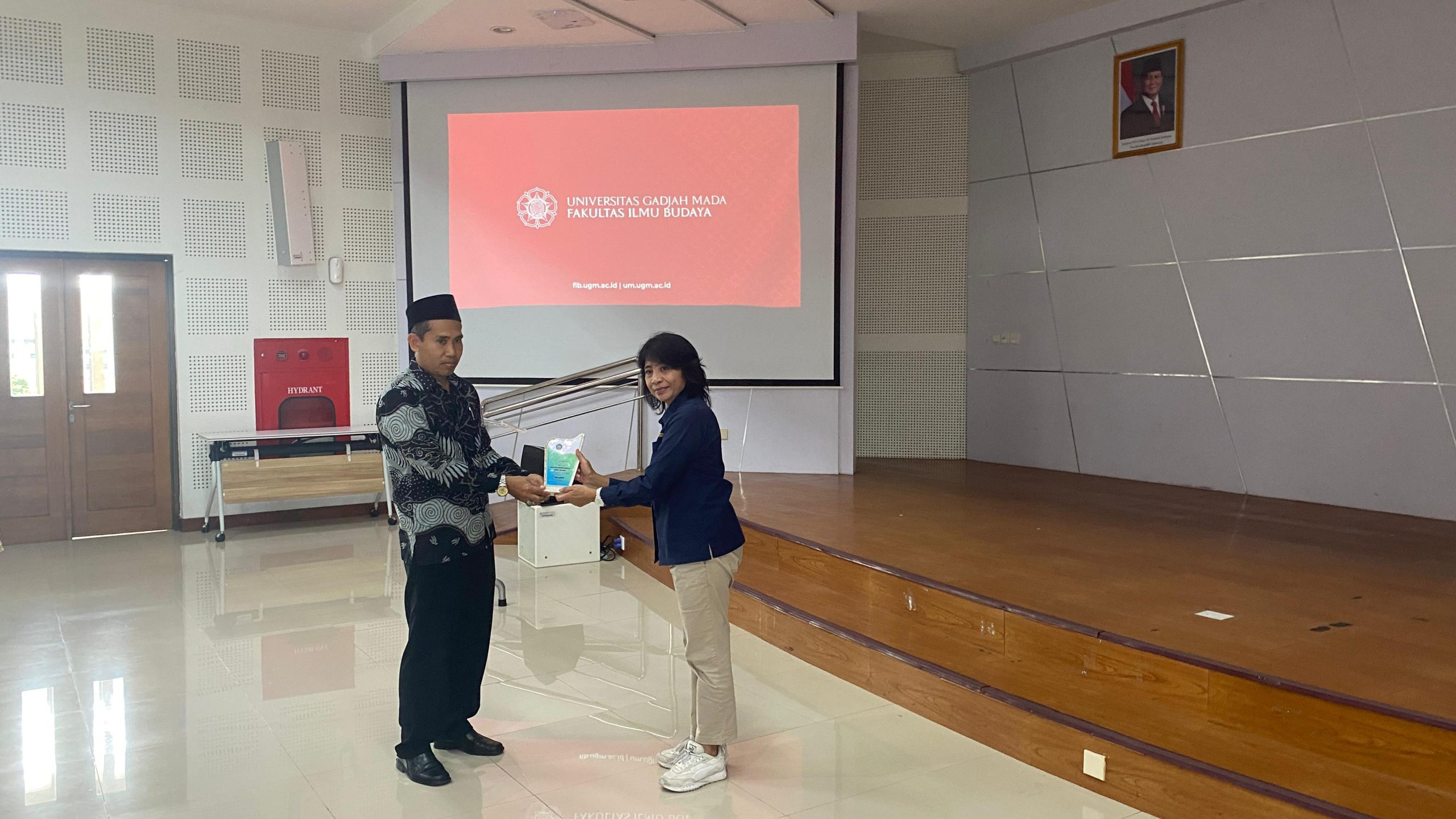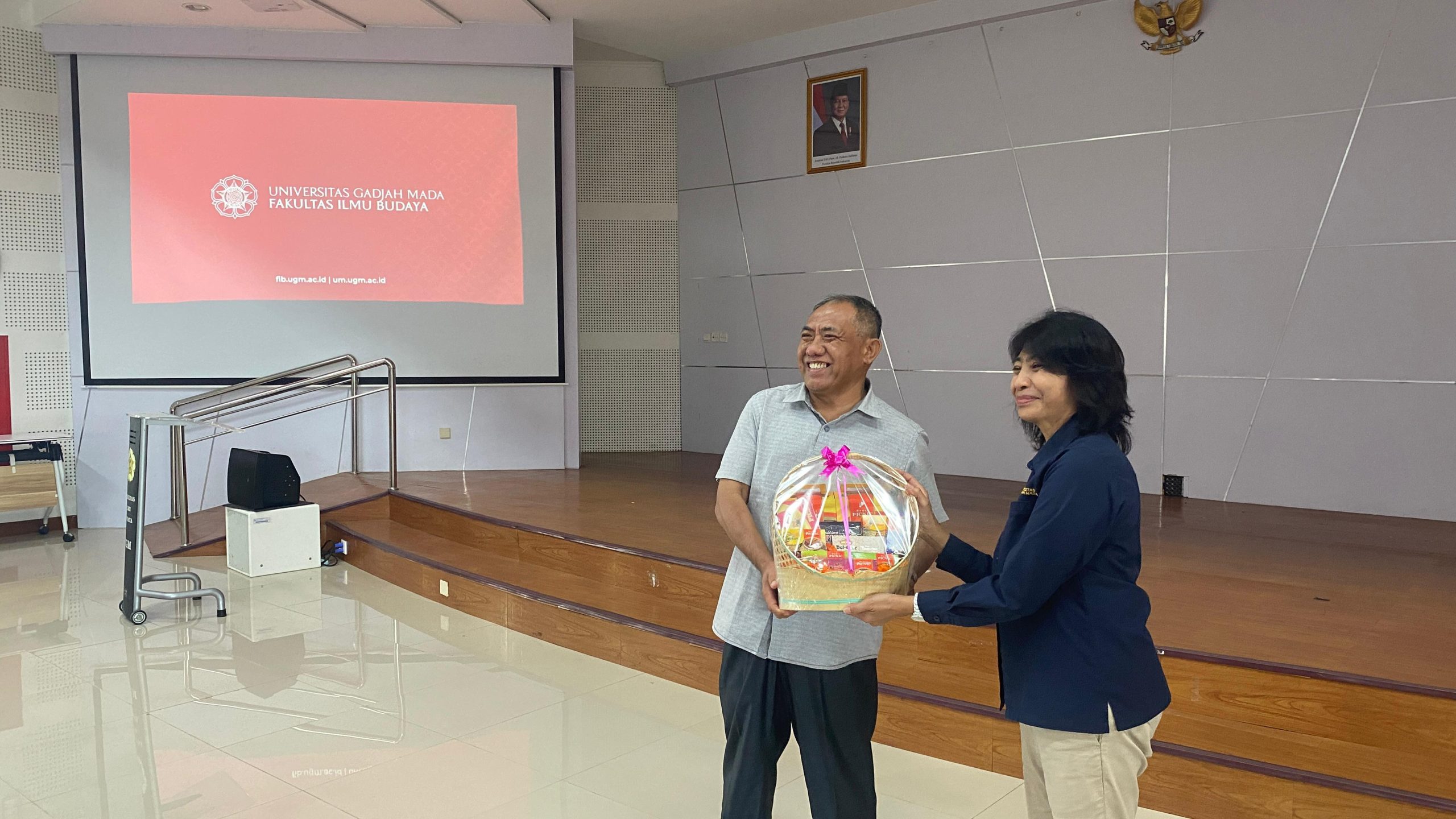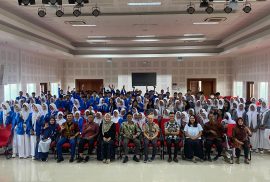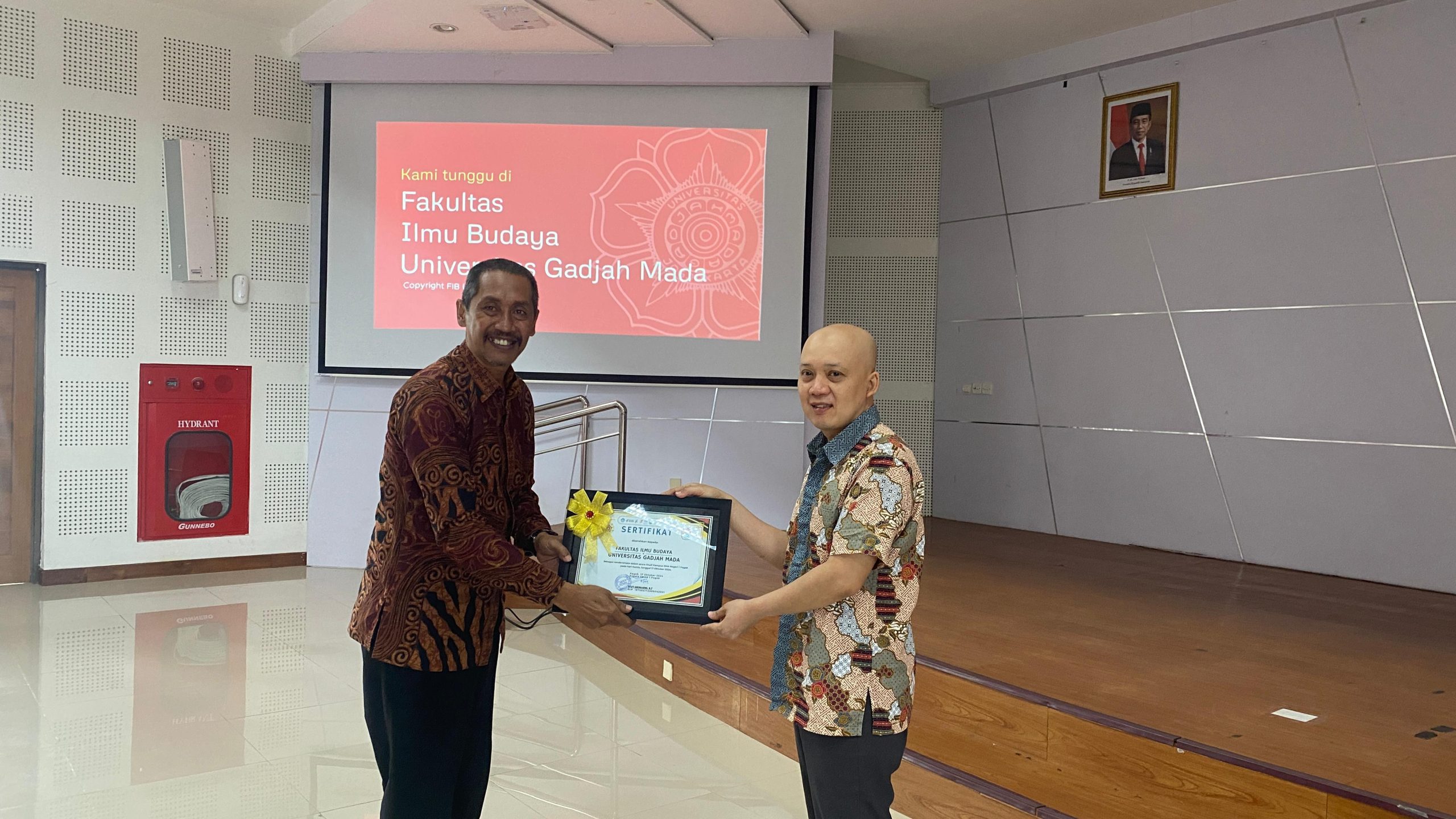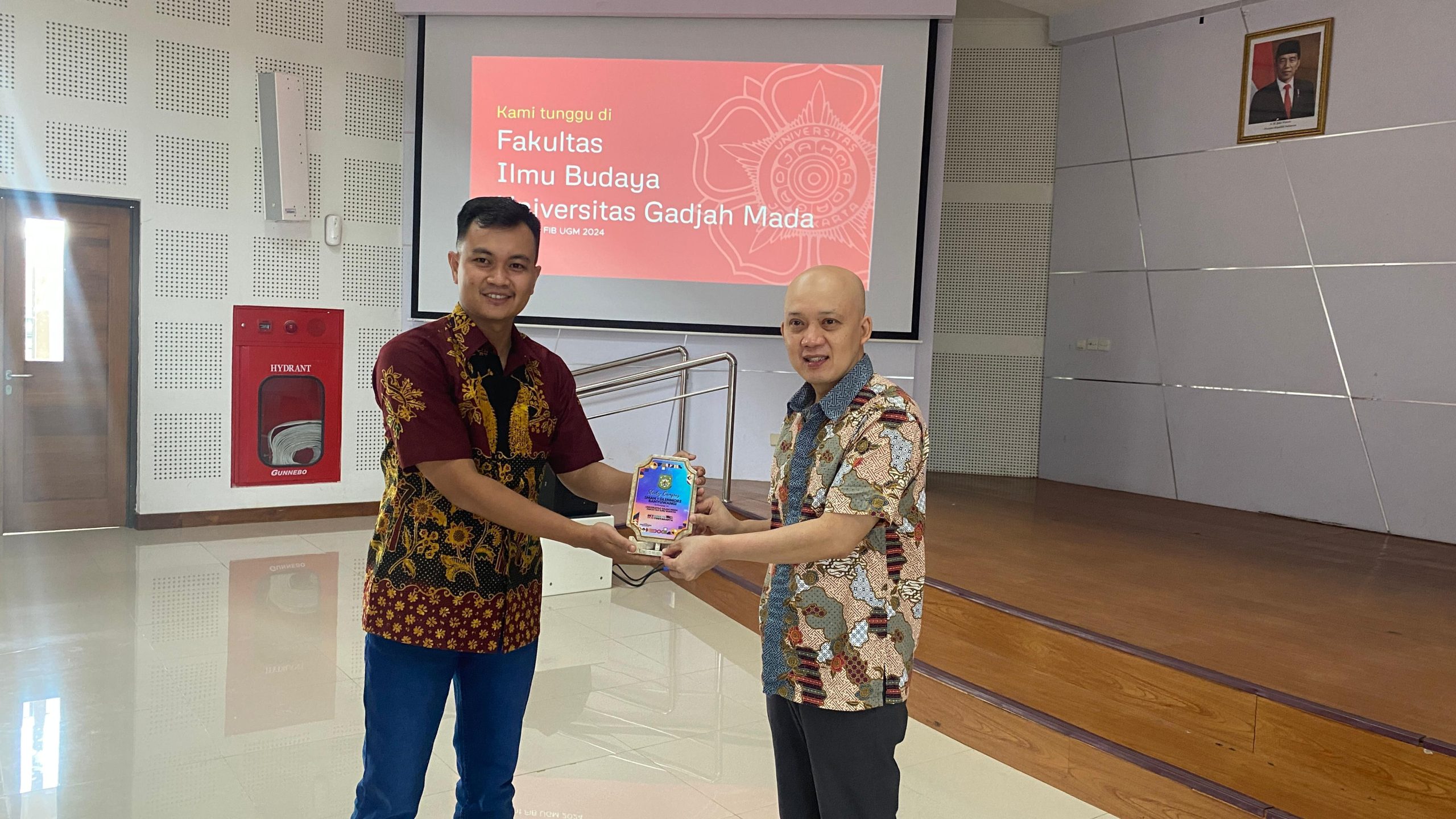Yogyakarta, November 6, 2024 – Faculty of Cultural Sciences Universitas Gadjah Mada (UGM) received a visit from Majapahit Technology Islamic Boarding School and SMAK Penabur Harapan Indah on Wednesday morning. The event held at the Auditorium on the 7th floor of Soegondo Building was attended by around 190 students, consisting of 100 students from Majapahit Technology Islamic Boarding School and 90 students from SMAK Penabur Harapan Indah, along with accompanying teachers.
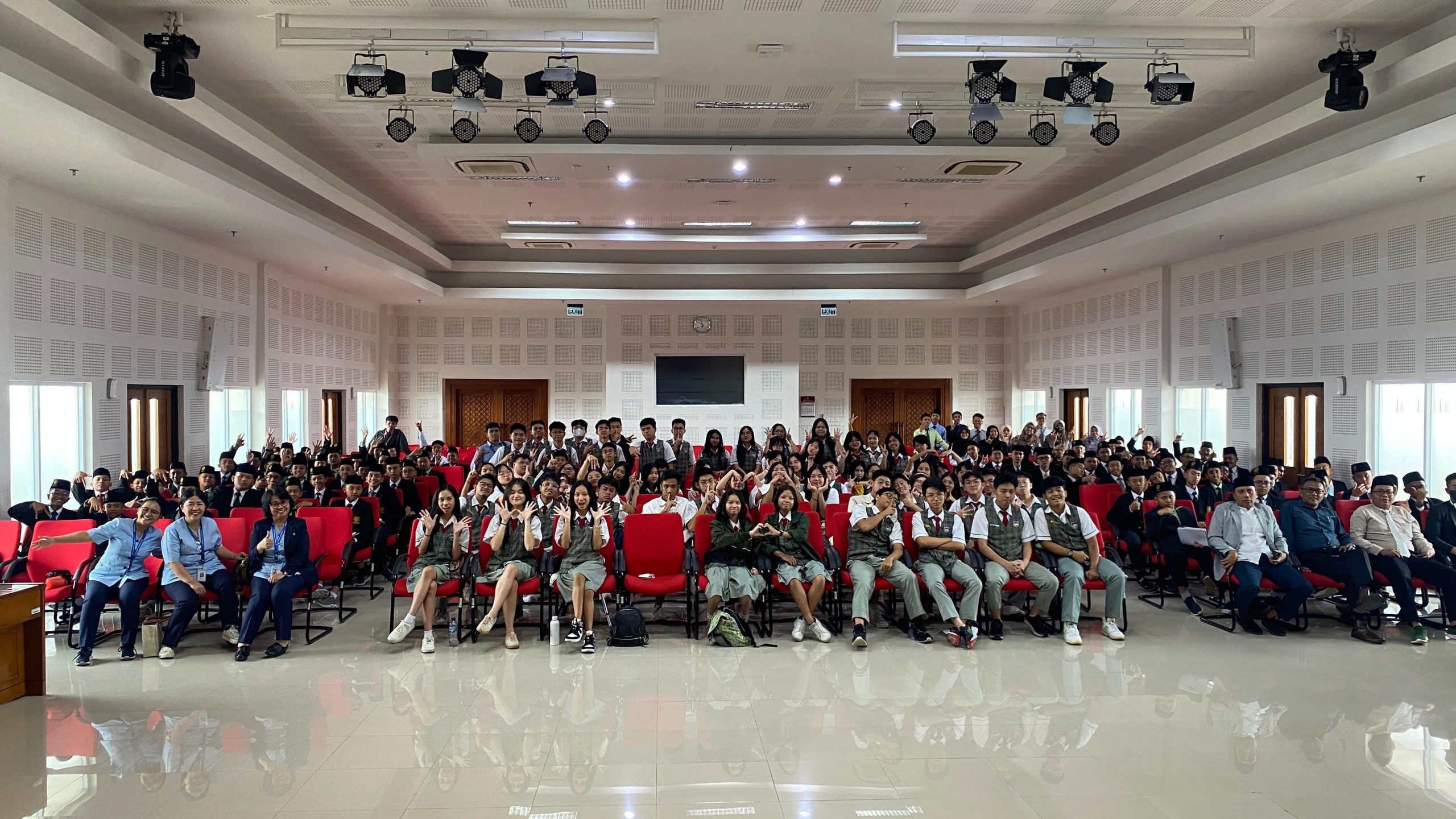
The visit was warmly welcomed by representatives of undergraduate and postgraduate students as well as staff of Public Relations and Cooperation of FIB UGM. In their remarks, teacher representatives from both schools expressed the purpose of their visit, which was to introduce students to the UGM campus environment and explore information about educational opportunities at the Faculty of Arts.
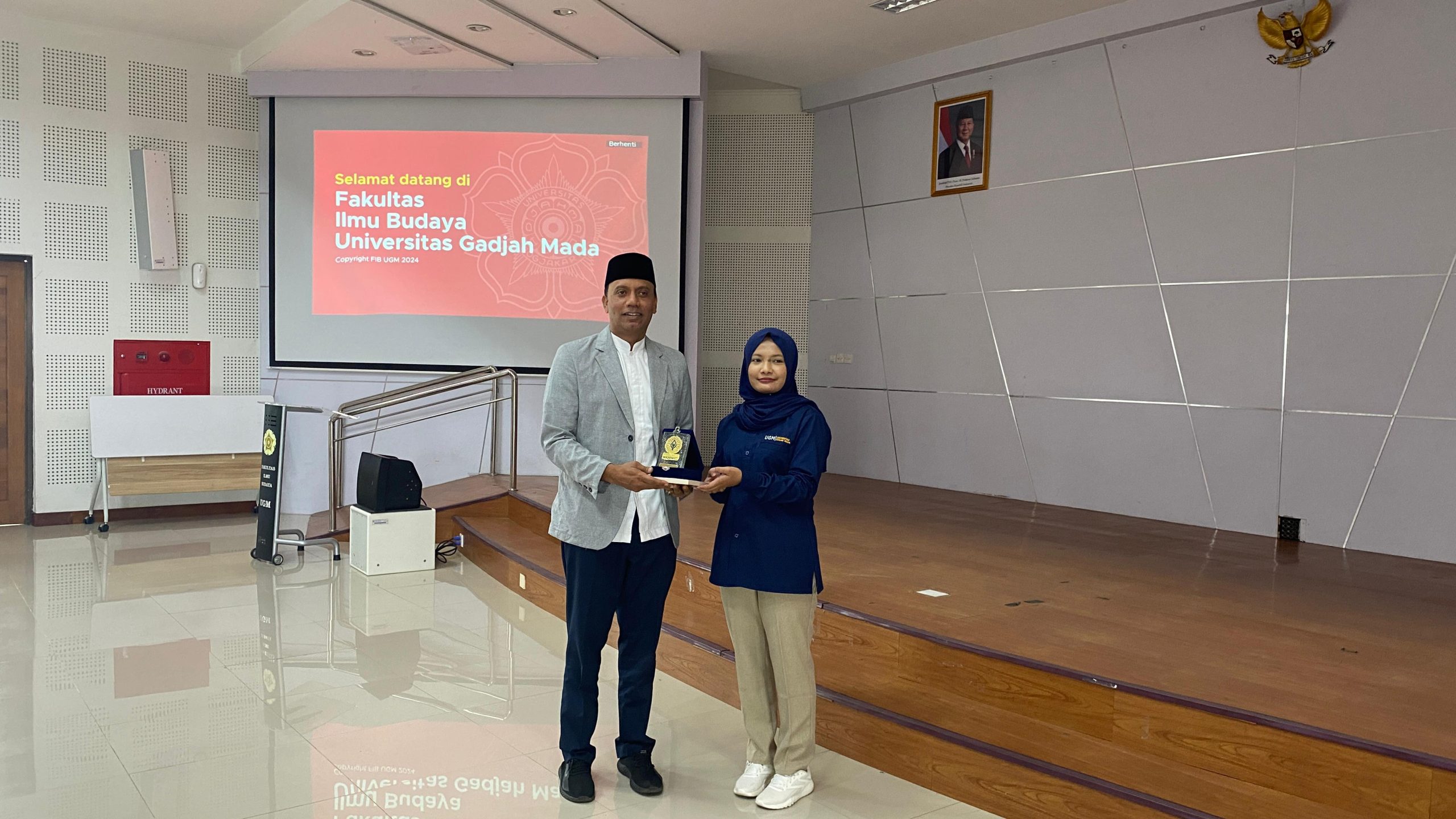
The question and answer session was interactive, with student representatives from Majapahit Technology Islamic Boarding School asking what technology is used in studying culture and the existence of a double degree program at FIB. Meanwhile, student representatives from SMAK Penabur Harapan Indah focused more on asking about the job prospects of graduates and how FIB graduates can compete with other faculties in the world of work.
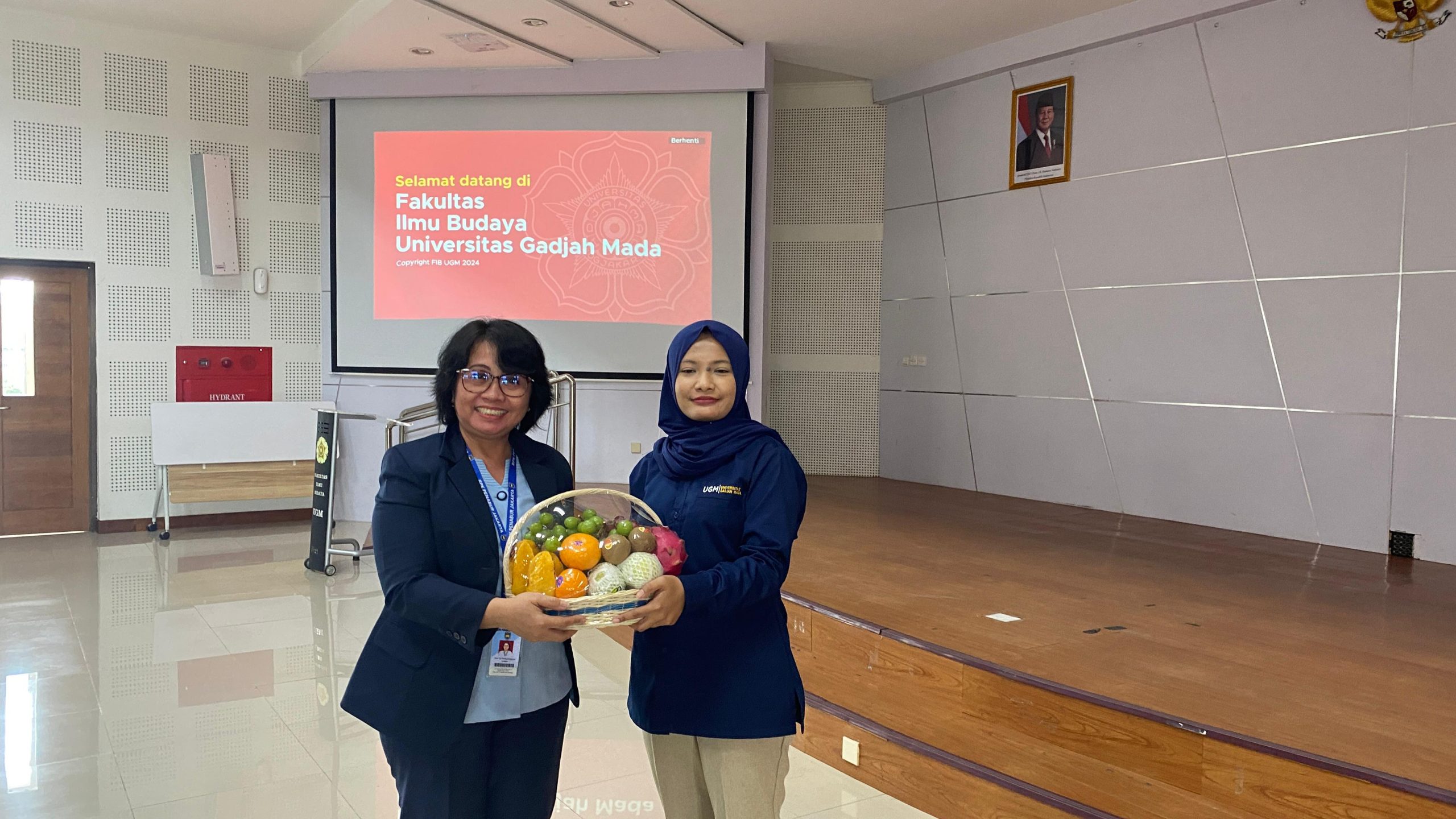
The event ended with the handover of souvenirs from both schools to FIB UGM, followed by a group photo session. This moment was closed with a casual conversation between students and students, creating an atmosphere of intimacy before the group left the room. This visit is expected to motivate students to continue their higher education at UGM, especially at the Faculty of Cultural Sciences.

